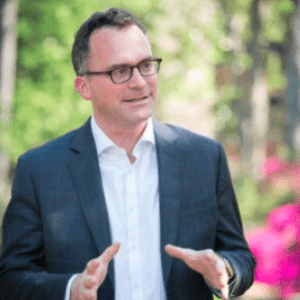
Dr. Michael Weisberg
Co-Director
Michael Weisberg is Professor and Chair of Philosophy, as well as Senior Faculty Fellow and Director of Post-Graduate Programs at Perry World House. He serves as Editor-in-Chief of Biology and Philosophy and an advisor to the United Nations Framework Convention on Climate Change’s Nairobi Work Programme. He is the author of Simulation and Similarity: Using Models to Understand the World and Galápagos: Life in Motion. Much of Professor Weisberg’s research is focused on how highly idealized models and simulations can be used to understand complex systems. He also leads efforts to better understanding the interface between humans and wildlife, between humans and the climate system, and how scientific issues are understood by communities in the Americas and in East Asia. He regularly discusses his findings with academic audiences, policy makers, and the public, having given presentations at the Penn Lightbulb Café, the AAAS, the National Academy of Sciences, and to Park officials, naturalist guides, and tourists in the Galápagos. Professor Weisberg received a B.S. in Chemistry and a B.A. in Philosophy from the University of California, San Diego in 1999, and continued graduate study in Philosophy and Evolutionary Biology at Stanford University, earning a 2003 Ph.D. in Philosophy.
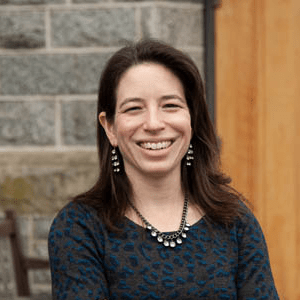
Dr. Deena Skolnick Weisberg
Co-Director
Deena Weisberg is Assistant Professor in the Department of Psychological and Brain Sciences at Villanova University, where she directs the Scientific Thinking and Representation (STAR) Laboratory. She is also the co-director of the Pennsylvania Laboratory for Understanding Science (PLUS). She earned her Ph.D. in Psychology from Yale University and received postdoctoral training at Rutgers University and at Temple University. Her research interests include scientific thinking and reasoning in children and adults, the development of imaginative cognition, and the roles that the imagination plays in learning. Her work has been published in a variety of scholarly journals, including Science and Cognition, and has received funding from the National Science Foundation and the Templeton Foundation
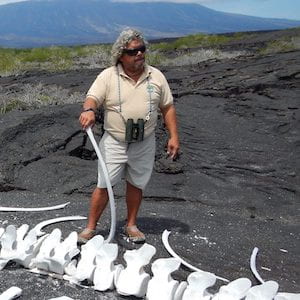
Ernesto Vaca
Co-Director
Ernesto Vaca co-directs the Alliance as a Galápagos Naturalist Guide, Level III. Trained in ornithology and evolutionary biology, he has lived in the Galápagos for the last three decades and has over 30 years of experience guiding groups through this fragile ecosystem
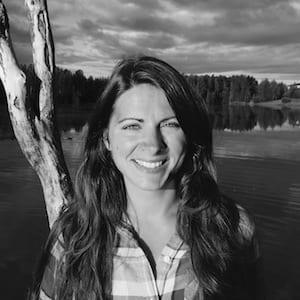
Dr. Karen Kovaka
Associate Director for Community Science
Karen Kovaka is Assistant Professor of Philosophy at Virginia Tech. Her research areas are philosophy of biology, philosophy of science, and environmental ethics and policy. In philosophy of biology, she is interested in the foundational concepts and processes of evolution, particularly debates about the concepts of inheritance and biological individuality. She also studies the interface between science, science policy, and public understanding of science, including how public opinion about environmental issues such as climate change may be sensitive to widespread misconceptions about the nature of science.
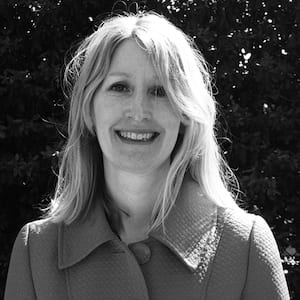
Karen M'Closkey
Associate Director for Landscape Architecture
Karen M’Closkey is a founding partner of PEG office of landscape + architecture. She is a licensed landscape architect in Pennsylvania, California, and Michigan. She has over ten years of experience working on a variety of award-winning landscapes.Karen is also Associate Professor of Landscape Architecture at the University of Pennsylvania. She teaches core design studios, advanced option studios, and contemporary theories of landscape architecture. Her advanced options studios explore techniques for working with repetition, ornamentation and surface modulation as a means to produce new forms of topography. Her bookUnearthed: The Landscapes of Hargreaves Associates(University of Pennsylvania Press, 2013) utilizes a selection of work by this highly regarded landscape architecture practice as a vehicle by which to gauge recent disciplinary trends.
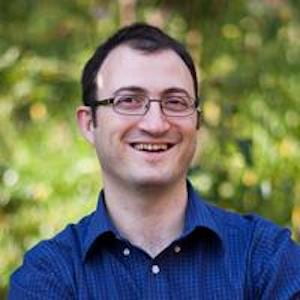
Dr. Erol Ackay
Associate Director for Biological Science
Born and raised in Turkey, Erol completed his undergraduate degree at Middle East Technical University in Ankara, majoring in physics and biology. He moved to the US to pursue his Ph.D. in Biology at Stanford University, working on models of mutualism and reproductive social behavior. He is currently an assistant professor of Biology at the University of Pennsylvania, as position he began in January 2014.He is interested in the evolution of complex biological and social organization. He mostly works on how individuals with conflicting interests evolve to cooperate with each other, in contexts varying from plant-microbe mutualisms to human behavior. He is sporadically accused of harassing songbirds in the wild, but maintains that it’s not him.

Fausto Rodriguez
Naturalist Guide
Fausto Rodriguez is originally from Riobamba in the countryside of the Ecuadorian Andes. He first visited the Galapagos in 1990 and has since become an experienced and biologically knowledgeable guide. In 1996, he completed the rigorous training to become a licensed Galapagos National Park Naturalist, and shortly thereafter he spent several years in London where he studied languages. He has also been trained by National Geographic to lead photography expeditions.He has guided personalized cruises, birding expeditions, and photography tours throughout the Islands. He has particular interests in geology, plants, birds, marine life, and mammals, and is passionate about guiding and teaching.
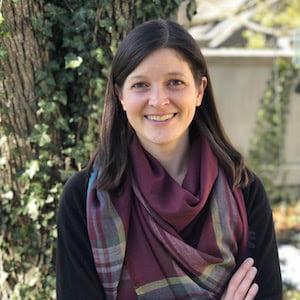
Dr. Melissa Jacquart
LAVA-Astro and Education Coordinator
Melissa is an Assistant Professor in the Philosophy Department at the University of Cincinnati and Associate Director for the Center for Public Engagement with Science. Her research focuses on the philosophy of science, and the role philosophy can play in general public understanding of science as well as science education. She also works on values in science, science policy, feminist philosophy, and philosophy of education.
Dr. Cecilia Coscaron
Project Advisor
Cecilia Coscaron is a medical entomologist with over 15 years of experience in environmental health and vector-borne disease. She is a Professor at Montgomery College (Maryland) and is a member of the Board of Directors of the Margaret McNamara Education Grants. Throughout her career, she has led multiple projects in developing countries and advised local health authorities in the control of vector borne diseases. She defined policies, designed programs, developed protocols and directed projects on the ecology and control of vector borne diseases. Additionally, she has trained professionals, field operators, and lab technicians to conduct monitoring and evaluation activities and field surveys. Dr. Coscaron’s research findings have been recorded in many scientific papers, meetings and journals. Her professional experience in malaria, dengue, chagas, and neglected tropical diseases (NTD) extends across several countries including, Argentina, Belize, Brazil, Colombia, Ecuador, Mali, Mexico, and the United States.
SR Foxley
Project Engineer
SR Foxley has over 20 years of experience working in the I.T. industry in roles including basic technical support, systems administration and Devops, data center architecture and management, network architecture and capacity planning, database design and optimization, software engineering and development, and security auditing and incident response. Most recently, he has been involved in writing and testing code for the family of open-source projects related to the OpenStack cloud operating system (which, among other things, powers the data centers which crunch the data flowing from CERN and the Large Hadron Collider). He is often consulted to help design and provide feedback onthe technical aspects of theGalápagos projects. While traveling with the team in the Galápagos, he helps to ensure we minimize technical difficulties which could otherwise lead to delays and missed opportunities. Outside of his work with the team, you may find him on a sailboat, flying small aircraft, picking out objects in the night sky with a telescope, or passionately advocating for science education and critical thinking.
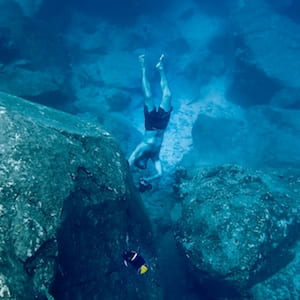
Brian Christiansen
Cinematographer
Brian Christiansen travels the world capturing images of pristine places. He graduated from Montana State University with a motion picture video theater arts degree focusing on natural history. His strengths are being able to see the big picture while focusing on the fine points of video production in remote and wild places. Much of his travel experience has been in conjunction with National Geographic’s maritime expeditions with Lindblad Expeditions, and he has collaborated with the Pennsylvania Laboratory for Understanding Science on projects in Galápagos, Chile, and Philadelphia. In his spare time, he pursues a variety of extreme sports, placing him in locales from the tops of snowy mountains to the bottoms of watery reefs and everything in between.
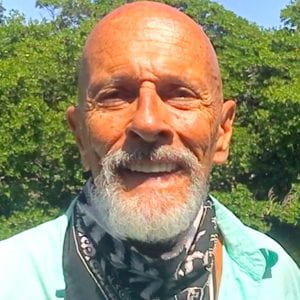
Dr. Jack Stein Grove
Marine Science Advisor
For more than 40 years, Jack has carried out marine biological research in the eastern tropical Pacific. An award winning underwater photographer and naturalist, he has served as a leader on worldwide expeditions from the North Pole to Antarctica, encompassing many of the most remote regions of the world’s oceans. A Dive Master and certified as a professional naturalist by the Galapagos National Park Service, he lived in the Galapagos Islands for seven years, doing research for his book. During the past four decades, Jack has served on the Board of Directors of the Seychelles Island Foundation and he is an advocate promoting the establishment of a multinational marine protected area including Costa Rica, Panama, Colombia and Ecuador. Dr. Grove is an active member of the General Assembly of the Charles Darwin Foundation. Stanford University Press published The Fishes of the Galápagos Islands (Grove & Lavenberg, 1997). At this time, Jack is dedicating most of his energy to the second edition of this comprehensive volume.

Dr. Andrea Restrepo-Mieth
Needs Assessment Project Advisor
Andrea is a postdoctoral fellow at Perry World House, University of Pennsylvania. She earned her Ph.D. in City and Regional Planning at Cornell University and holds a master’s in public policy from the Lee Kuan Yew School, National University of Singapore. Andrea’s research focuses on the emergence of more environmentally sustainable and socially progressive planning institutions in cities in the global South and how state and non-state actors attempt to stabilize those emerging practices.
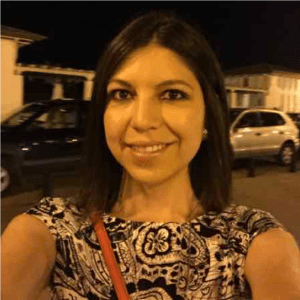
Martha Yumiseva-Lackenbacher
Needs Assessment Project Advisor
Martha Yumiseva-Lackenbacher is originally from Quito (Ecuador). She is currently a PhD student at the University of Maryland’s School of Public Health. She earned her M.S.Ed. in Human Development at the University of Pennsylvania. She is a passionate researcher, investigating parenting practices in the context of health as the baseline of children’s optimal cognitive, social and emotional development in vulnerable populations. Martha enjoys reading, traveling and working out with her husband.
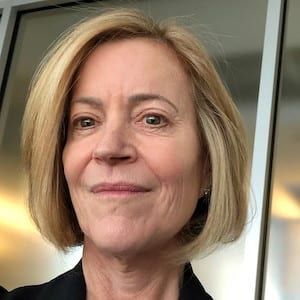
Dr. jennifer Pinto-Martin
Public Health Project Advisor
Jennifer Pinto-Martin, MPH, PhD is the Viola MacInnes/Independence Professor in the Department of Biobehavioral Health Sciences in the University of Pennsylvania School of Nursing with a secondary appointment in the Department of Epidemiology in the Perelman School of Medicine. She is the Executive Director of UPenn’s Center for Public Health Initiatives and currently serves as the Ombuds for the University. She is the former Director of the Master of Public Health Program and has served as both a Department Chair and Chair of the University Faculty Senate. Dr. Pinto-Martin’s research includes the Neonatal Brain Hemorrhage (NBH) Study, a longitudinal study of neonatal brain injury in low birthweight infants and the Study to Explore Early Development (SEED), a multi-site, case-control study of the risk factors associated with autism spectrum disorders. She has worked with Dr. Weisberg to bring public health students to the Galapagos to identify public health projects of interest to the community.
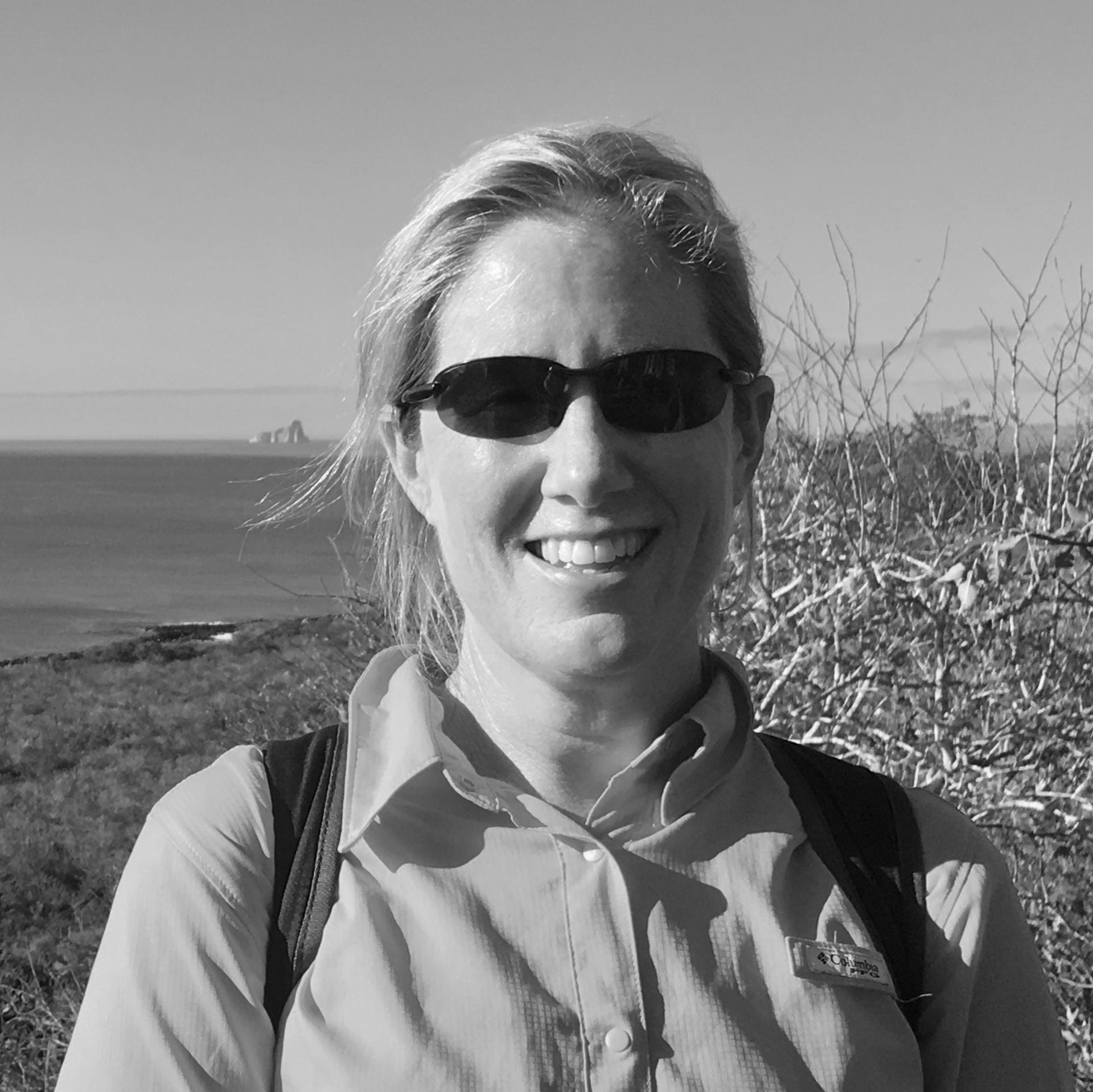
Dr. Carol McLaughlin
Public Health Collaborator
Carol McLaughlin is a public health specialist and infectious disease physician passionate about community-based health programs. She co-directs the Global Health Track in Penn’s Master of Public Health (MPH) program and is the senior advisor for global public health and founding team member at the Center for High Impact Philanthropy in Penn’s School of Social Policy and Practice. Trained in internal medicine, pediatrics, and tropical medicine, she is an Assistant Professor of Clinical Medicine in the Division of Infectious Diseases and directs the Global Health Equities track in Penn Medicine’s internal medicine and med-peds residency programs. She studied environmental science and international policy at Princeton and received MD and MPH degrees from the Johns Hopkins University School of Medicine and Bloomberg School of Public Health.
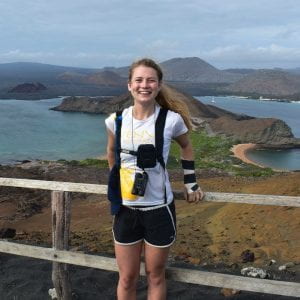
Maddie Tilyou
Lab Manager
Maddie Tilyou graduated from Penn in 2019 with a major in Biology with a concentrating in Ecology and Evolutionary Biology and minor in Environmental Science. She has worked in the PLUS lab since 2016 as a member of the LAVA team. As part of this work, she has spent the past three summers in the Galápagos helping establish various community science initiatives.She is passionate about promoting participatory science and inclusive conservation in the Galápagos and beyond. To see her amateur photography skills and support her budding interest in scientific communication, check out her science-themed Instagram @maddaboutbio. In her free time, Maddie can be found hiking with her geriatric Jack Russell terrier, scuba diving, or attempting to surf

Kelly Kennedy
Webmaster and Needs Assessment Advisor
Kelly currently works as a Clinical Research Coordinator in the Neurodevelopment and Psychosis Section of Penn Psychiatry. Kelly has helped pilot several LAVA projects during her time in the lab; notably, training students to collect data on sea lions with LAVA Lobos and piloting a needs assessment interview in 2017-2018. Most recently, she has designed the lab’s website and has helped to develop interviews to assess the needs of the local San Cristóbal community. When she’s not working, Kelly enjoys traveling, craft beer, yoga, scuba diving, and eating Asian cuisine.
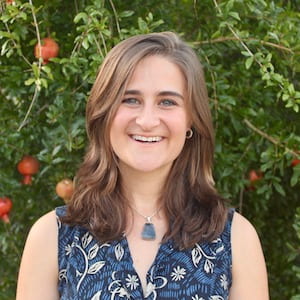
Sophia Simon
Conocer Galapagos Project Coordinator
Sophia Simon graduated from the University of Pennsylvania in 2019. She completed a major in Biology with a minor in International Development. She is passionate about the relationship between biology, humans, and the environment, and hopes to combine these interests in her future career. Sophia is excited to be a project coordinator for LAVA projects on San Cristóbal. In her free time, Sophia enjoys listening to podcasts, reading, and playing frisbee.
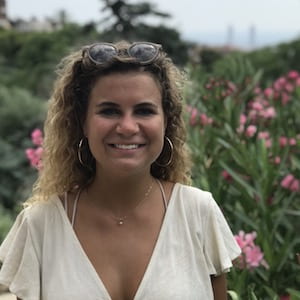
Olivia Fielding
LAVA-Mar Project Coordinator
Olivia Fielding is a senior at the University of Pennsylvania, pursuing a double major in Earth Science and Political Science. She is interested in human interactions with the environment, particularly through environmental policy. She helped to implement LAVA-Lobos in the Galápagos in the summer of 2019, and spearheaded LAVA-Mar, a scuba diving marine conservation project that has now expanded to be the lab’s central project for 2021. She also does work with Michael Weisberg on implementing indigenous knowledge in the UNFCCC, and works with Perry World House’s Climate Action Research Group discussing big-picture ideas surrounding climate change. Olivia loves to travel, and is hoping to get back to the Galápagos as soon as she can!

Emmie Gocke
LAVA-Agro Project Coordinator
Emmie Gocke is an undergraduate biology student at Penn. She grew up in Jackson Hole, Wyoming, where she established a strong connection to the natural world and a love for being in the mountains. She is interested in ecology research and the responsible management and conservation of public lands. Emmie has previously volunteered in these areas with the Wyoming Game and Fish Department, as well as in Grand Teton NationalPark. Emmie loves to trail run, hike, climb, fish, ski, backpack and mountain bike.
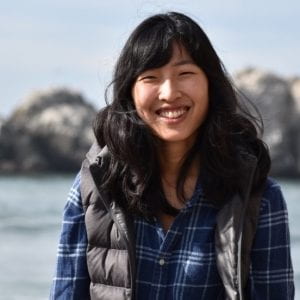
Gina Chang
Public Health Project Researcher
Gina Chang is a Child Neurology resident at CHOP. She earned her MD/MPH at Penn, graduating in 2020.For her MPH fieldwork experience, she spent thesummer of 2019in San Cristóbal, helping to establish the LAVA Salud program by conducting a public healthneeds assessment. She is excited to continue contributing to the growth of the LAVA Salud program! In her free time, Gina enjoys playing the cello, reading, hiking,and biking around Philadelphia.
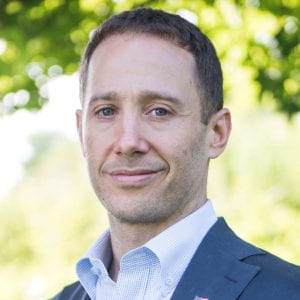
Jesse Hamilton
Green Consulting and Social Media Project Coordinator
Jesse Hamilton is a Ph.D. student in Philosophy at the University of Pennsylvania. His primary research interests lie in ethics, political philosophy, and philosophy of science. Specifically, he focuses on issues related to human rights, distributive justice, climate change, and just war. Before coming to Penn, Jesse spent ten years in the U.S. Army, followed by ten years in finance and consulting.

Kate Nicole Hoffman
LAVA Climate Project Coordinator
Kate Nicole Hoffman is a PhD student in Philosophy at the University of Pennsylvania. Her research interests are in philosophy of science, especially environmental ethics, climate change, and animal consciousness and welfare. Kate Nicole has an MA in Philosophy from York University, and a BA in Music from the Crane School of Music in Potsdam, NY. She is currently working with Michael Weisberg on a project involving governance issues surrounding climate change and geoengineering
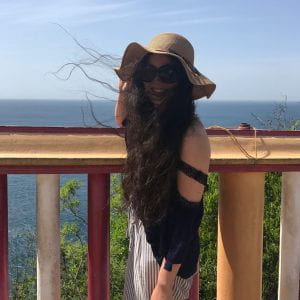
Hanyu Ma
LAVA-Mar Project Coordinator
Hanyu Ma is a PhD student in Philosophy at the University of Pennsylvania. Her primary research interests lie in philosophy of science and political philosophy, especially values in science, efficient governance and climate change. Hanyu Ma received her B.S. inPhysics, focusing on High Energy Frontier researches and worked at Fermilab. She is from Xinjiang, China and speaks Mandarin, Cantonese, English and Spanish. Hanyu loves traveling and outdoor activities such as skiing and hiking. She is also an EASA licensed piolet (PPL) and a PADI divemaster
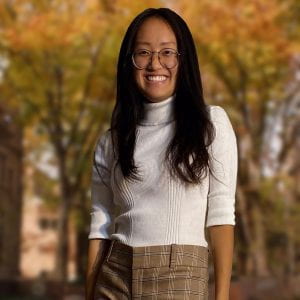
Melissa Nong
Website Designer and Climate Resilience Project Researcher
Melissa Nong is a Class of 2024 student at the University of Pennsylvania, intending to major in Philosophy, Politics, and Economics. She also holds interest in environmental policy, climate change, and endangered species biology and conservation. She is currently working with her fellow lab members to develop a climate monitoring project in the Galapagos. During her free time, Melissa can be found playing piano, hiking, or going on long distance runs.
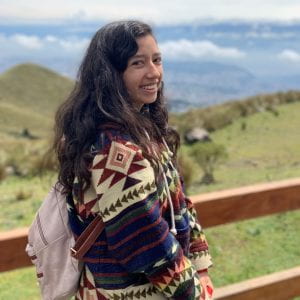
Lia Enriquez
Project Researcher
Lia Enriquez is an undergraduate student at the University of Pennsylvania majoring in Environmental Studies and Political Science. Born in Quito, Ecuador, she is interested in environmental policy and the impact of climate change on Latin America. Outside the lab, she is engaged with feminist organizing, dancing, making jewelry, and hiking.
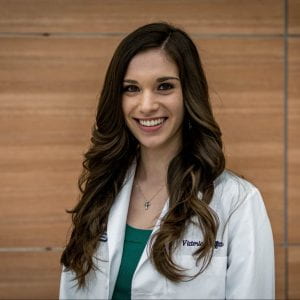
Victoria Moffitt
Public Health Project Researcher
Victoria Moffitt is a 3rdyear medical student at the Perelman School of Medicine. In her future career, she hopes to become a Med-Peds physician (a doctor who cares for both children and adults). She also plans to pursue an MPH and is especially interested in a subset of Public Health called One Health –a field that seeks to achieve optimal health outcomes by appreciating the intersection of human health, animal health, and environmental health. She was therefore thrilled to join the Galápagos Education and Research Alliance, as the interconnectedness of One Health is undoubtedly exemplified in Galápagos. She spent the summer of 2019 conducting a public health needs assessment in San Cristóbal alongside Gina Chang, Ernesto Vaca, and members of the community. Prior to attending the Perelman School of Medicine, she completed her undergraduate education at the University of Pennsylvania where she double majored in English and Hispanic Studies. In her free time, she loves scuba diving, spending time with her dogs and parrot, reading, and playing the piano.
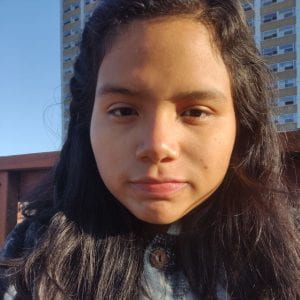
Dayanna Salas
Project Researcher
Dayanna Salas is a part of the undergraduate Class of ‘24 at the University of Pennsylvania. She intends to double major in International Relations and Economics. She is interested in the diplomatic, economic, and cultural relations between South American countries. Born in Guayaquil, Ecuador, she intends to use her education to get involved in Ecuadorian politics. During her free time, Dayanna enjoys listening to k-pop, playing guitar, and watching Netflix shows with her friends.
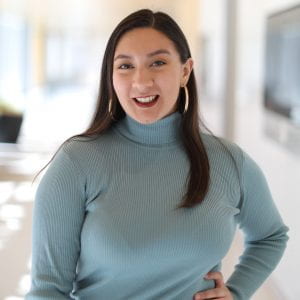
Nikole A. Bonillas Félix
Project Researcher
Born in Nogales, Sonora, México and raised in Laredo, Texas, Nikole A. Bonillas Félix is an undergraduate the University of Pennsylvania studying Biology and Latin American and Latinx Studies on the pre-med track. She is interested in the intersection of biology and Latin American culture, wishing to promote science education and public health in Latinx communities. When not working with the lab, Nikole loves to sing, make, and listen to music on her own and as co-founder and co-director of Fuerza Penn’s first and only Latinx music group. She also enjoys cooking her favorite Mexican dishes, spending time with her friends and family, and participating in community organization for arts and culture and immigrant, health, and social justice.

Jacqueline Wallis
Climate Resilience Project Researcher
Jacqueline Mae Wallis is a PhD student in Philosophy at the University of Pennsylvania. Her research interests include philosophy of science, philosophy of biology, bioethics, and social & political philosophy as they intersect with issues of justice. Before graduate school, she worked as a biology research technician at the Fred Hutch Cancer Research Center in Seattle, WA. Jacqueline has an MA in Philosophy of Biological and Cognitive Sciences from the University of Bristol, and a BS/BA dual-degree in Cell & Molecular Biology and Philosophy from Seattle University. She’s inherited some Spanish from her Argentine abuelita and is a lover of reading, walking, and peanut butter.
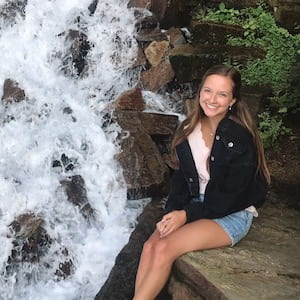
Megan Howard
Project Researcher
Megan Howard is an undergraduate student at Villanova University. She is studying Cognitive and Behavioral Neuroscience and Sustainability Studies. She is interested in the intersection of human health and the environment and hopes to integrate these interests in her future career. In her free time, she can be found on the sidelines of Villanova basketball and football games, doing puzzles, or reading.
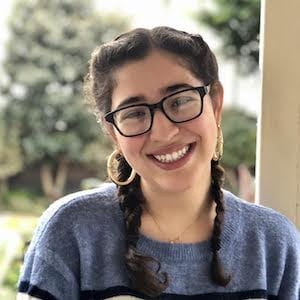
Natasha Chity-Guevara
Project Researcher
Natasha D. Chity-Guevara is an undergraduate at the University of Pennsylvania majoring in Hispanic Studies with minors in International Relations and Modern Middle Eastern Studies. She grew up in an Ecuadorian-Iranian household in Philadelphia, Pennsylvania and speaks English, Spanish, and French. She is interested in promoting science education in Latin American countries, as well as in the intersection between society and nature. After Penn, Natasha is planning to pursue a dual Masters & PhD in Spanish and Latin American Studies. In her free time, she enjoys baking, listening to music, volunteering with Puentes de Salud in South Philadelphia, and spending time with her friends and family.
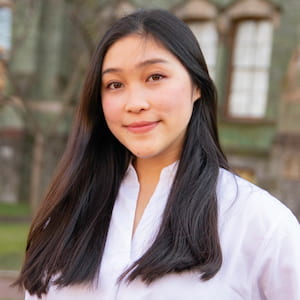
Elizabeth Vo-Phamhi
Project Researcher
Elizabeth Vo-Phamhi is in the Class of 2022 at the University of Pennsylvania and is double majoring in Cognitive Science (Computation concentration) and Classical Studies. She is passionate about issues of conservation, climate change, and access to science education. She is from San Bruno, California, and speaks English, Vietnamese, and Japanese. Outside of the lab, Elizabeth enjoys playing the harp, learning Spanish on Duolingo, and exploring the redwoods near home.
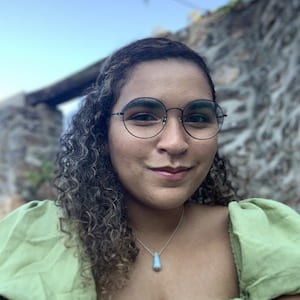
Nia Lucas
Project Researcher
Nia Lucas is a 2nd year MPH student studying global health at the University of Pennsylvania. She graduated from Emory University in 2019 where she studied biology and global health. In her future career, she plans to practice global medicine in Latin America while working to address health disparities in Latinx communities. During her free time, she enjoys hiking, photography, and exploring restaurants.
Collaborators

Dr. Michael Weisberg
Co-Director
Michael Weisberg is Professor and Chair of Philosophy, as well as Senior Faculty Fellow and Director of Post-Graduate Programs at Perry World House. He serves as Editor-in-Chief of Biology and Philosophy and an advisor to the United Nations Framework Convention on Climate Change’s Nairobi Work Programme. He is the author of Simulation and Similarity: Using Models to Understand the World and Galápagos: Life in Motion. Much of Professor Weisberg’s research is focused on how highly idealized models and simulations can be used to understand complex systems. He also leads efforts to better understanding the interface between humans and wildlife, between humans and the climate system, and how scientific issues are understood by communities in the Americas and in East Asia. He regularly discusses his findings with academic audiences, policy makers, and the public, having given presentations at the Penn Lightbulb Café, the AAAS, the National Academy of Sciences, and to Park officials, naturalist guides, and tourists in the Galápagos.Professor Weisberg received a B.S. in Chemistry and a B.A. in Philosophy from the University of California, San Diego in 1999, and continued graduate study in Philosophy and Evolutionary Biology at Stanford University, earning a 2003 Ph.D. in Philosophy.
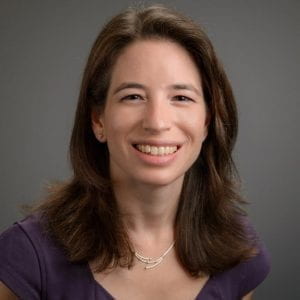
Dr. Deena Skolnick Weisberg
Co-Director
Deena Weisberg isAssistant Professor in the Department of Psychological and Brain Sciences at Villanova University, where she directs the Scientific Thinking and Representation (STAR) Laboratory. She is also the co-director of the Pennsylvania Laboratory for Understanding Science (PLUS). She earned her Ph.D. in Psychology from Yale University and received postdoctoral training at Rutgers University and at Temple University. Her research interests include scientific thinking and reasoning in children and adults, the development of imaginative cognition, and the roles that the imagination plays in learning. Her work has been published in a variety of scholarly journals, including Science and Cognition, and has received funding from the National Science Foundation and the Templeton Foundation

Ernesto Vaca
Co-Director
Ernesto Vaca co-directs the Alliance as a Galápagos Naturalist Guide, Level III. Trained in ornithology and evolutionary biology, he has lived in the Galápagos for the last three decades and has over 30 years of experience guiding groups through this fragile ecosystem

Dr. Karen Kovaka
Associate Director for Community Science
Karen Kovaka is Assistant Professor of Philosophy at Virginia Tech. Her research areas are philosophy of biology, philosophy of science, and environmental ethics and policy. In philosophy of biology, she is interested in the foundational concepts and processes of evolution, particularly debates about the concepts of inheritance and biological individuality. She also studies the interface between science, science policy, and public understanding of science, including how public opinion about environmental issues such as climate change may be sensitive to widespread misconceptions about the nature of science.

Karen M'Closkey
Associate Director for Landscape Architecture
Karen M’Closkey is a founding partner ofPEG office of landscape + architecture. She is a licensed landscape architect in Pennsylvania, California, and Michigan. She has over ten years of experience working on a variety of award-winning landscapes.Karen is also Associate Professor of Landscape Architecture at the University of Pennsylvania. She teaches core design studios, advanced option studios, and contemporary theories of landscape architecture. Her advanced options studios explore techniques for working with repetition, ornamentation and surface modulation as a means to produce new forms of topography. Her bookUnearthed: The Landscapes of Hargreaves Associates(University of Pennsylvania Press, 2013) utilizes a selection of work by this highly regarded landscape architecture practice as a vehicle by which to gauge recent disciplinary trends.

Dr. Erol Ackay
Associate Director for Biological Science
Born and raised in Turkey, Erol completed his undergraduate degree at Middle East Technical University in Ankara, majoring in physics and biology. He moved to the US to pursue his Ph.D. in Biology at Stanford University, working on models of mutualism and reproductive social behavior. He is currently an assistant professor of Biology at the University of Pennsylvania, as position he began in January 2014.He is interested in the evolution of complex biological and social organization. He mostly works on how individuals with conflicting interests evolve to cooperate with each other, in contexts varying from plant-microbe mutualisms to human behavior. He is sporadically accused of harassing songbirds in the wild, but maintains that it’s not him.
Dr. Cecilia Coscaron
Project Advisor
Cecilia Coscaron is a medical entomologist with over 15 years of experience in environmental health and vector-borne disease. She is a Professor at Montgomery College (Maryland) and is a member of the Board of Directors of the Margaret McNamara Education Grants. Throughout her career, she has led multiple projects in developing countries and advised local health authorities in the control of vector borne diseases. She defined policies, designed programs, developed protocols and directed projects on the ecology and control of vector borne diseases. Additionally, she has trained professionals, field operators, and lab technicians to conduct monitoring and evaluation activities and field surveys. Dr. Coscaron’s research findings have been recorded in many scientific papers, meetings and journals. Her professional experience in malaria, dengue, chagas, and neglected tropical diseases (NTD) extends across several countries including, Argentina, Belize, Brazil, Colombia, Ecuador, Mali, Mexico, and the United States.

Fausto Rodriguez
Naturalist Guide
Fausto Rodriguez is originally from Riobamba in the countryside of the Ecuadorian Andes. He first visited the Galapagos in 1990 and has since become an experienced and biologically knowledgeable guide. In 1996, he completed the rigorous training to become a licensed Galapagos National Park Naturalist, and shortly thereafter he spent several years in London where he studied languages. He has also been trained by National Geographic to lead photography expeditions.He has guided personalized cruises, birding expeditions, and photography tours throughout the Islands. He has particular interests in geology, plants, birds, marine life, and mammals, and is passionate about guiding and teaching.

Dr. Melissa Jacquart
LAVA-Astro and Education Coordinator
Melissa is an Assistant Professor in the Philosophy Department at the University of Cincinnati and Associate Director for the Center for Public Engagement with Science. Her research focuses on the philosophy of science, and the role philosophy can play in general public understanding of science as well as science education. She also works on values in science, science policy, feminist philosophy, and philosophy of education.
SR Foxley
Project Engineer
SR Foxley has over 20 years of experience working in the I.T. industry in roles including basic technical support, systems administration and Devops, data center architecture and management, network architecture and capacity planning, database design and optimization, software engineering and development, and security auditing and incident response. Most recently, he has been involved in writing and testing code for the family of open-source projects related to the OpenStack cloud operating system (which, among other things, powers the data centers which crunch the data flowing from CERN and the Large Hadron Collider). He is often consulted to help design and provide feedback onthe technical aspects of theGalápagos projects. While traveling with the team in the Galápagos, he helps to ensure we minimize technical difficulties which could otherwise lead to delays and missed opportunities. Outside of his work with the team, you may find him on a sailboat, flying small aircraft, picking out objects in the night sky with a telescope, or passionately advocating for science education and critical thinking.

Brian Christiansen
Cinematographer
Brian Christiansen travels the world capturing images of pristine places. He graduated from Montana State University with a motion picture video theater arts degree focusing on natural history. His strengths are being able to see the big picture while focusing on the fine points of video production in remote and wild places. Much of his travel experience has been in conjunction with National Geographic’s maritime expeditions with Lindblad Expeditions, and he has collaborated with the Pennsylvania Laboratory for Understanding Science on projects in Galápagos, Chile, and Philadelphia. In his spare time, he pursues a variety of extreme sports, placing him in locales from the tops of snowy mountains to the bottoms of watery reefs and everything in between.

Jack Stein Grove, Ph.D.
Marine Science Advisor
For more than 40 years, Jack has carried out marine biological research in the eastern tropical Pacific. An award winning underwater photographer and naturalist, he has served as a leader on worldwide expeditions from the North Pole to Antarctica, encompassing many of the most remote regions of the world’s oceans. A Dive Master and certified as a professional naturalist by the Galapagos National Park Service, he lived in the Galapagos Islands for seven years, doing research for his book. During the past four decades, Jack has served on the Board of Directors of the Seychelles Island Foundation and he is an advocate promoting the establishment of a multinational marine protected area including Costa Rica, Panama, Colombia and Ecuador. Dr. Grove is an active member of the General Assembly of the Charles Darwin Foundation. Stanford University Press published The Fishes of the Galápagos Islands (Grove & Lavenberg, 1997). At this time, Jack is dedicating most of his energy tothe second edition of this comprehensive volume.

Dr. Andrea Restrepo-Mieth
Needs Assessment Coordinator
Andrea is a postdoctoral fellow at Perry World House, University of Pennsylvania. She earned her Ph.D. in City and Regional Planning at Cornell University and holds a master’s in public policy from the Lee Kuan Yew School, National University of Singapore. Andrea’s research focuses on the emergence of more environmentally sustainable and socially progressive planning institutions in cities in the global South and how state and non-state actors attempt to stabilize those emerging practices.

Martha Yumiseva-Lackenbache
Project Advisor
Martha Yumiseva-Lackenbacher is originally from Quito (Ecuador). She is currently a PhD student at the University of Maryland’s School of Public Health. She earned her M.S.Ed. in Human Development at the University of Pennsylvania. She is a passionate researcher, investigating parenting practices in the context of health as the baseline of children’s optimal cognitive, social and emotional development in vulnerable populations. Martha enjoys reading, traveling and working out with her husband.

Dr. jennifer Pinto-Martin
Public Health Project Advisor
Jennifer Pinto-Martin, MPH, PhD is the Viola MacInnes/Independence Professor in the Department of Biobehavioral Health Sciences in the University of Pennsylvania School of Nursing with a secondary appointment in the Department of Epidemiology in the Perelman School of Medicine. She is the Executive Director of UPenn’s Center for Public Health Initiatives and currently serves as the Ombuds for the University. She is the former Director of the Master of Public Health Program and has served as both a Department Chair and Chair of the University Faculty Senate. Dr. Pinto-Martin’s research includes the Neonatal Brain Hemorrhage (NBH) Study, a longitudinal study of neonatal brain injury in low birthweight infants and the Study to Explore Early Development (SEED), a multi-site, case-control study of the risk factors associated with autism spectrum disorders. She has worked with Dr. Weisberg to bring public health students to the Galapagos to identify public health projects of interest to the community.

Dr. Carol McLaughlin
Public Health Collaborator
Carol McLaughlin is a public health specialist and infectious disease physician passionate about community-based health programs. She co-directs the Global Health Track in Penn’s Master of Public Health (MPH) program and is the senior advisor for global public health and founding team member at the Center for High Impact Philanthropy in Penn’s School of Social Policy and Practice. Trained in internal medicine, pediatrics, and tropical medicine, she is an Assistant Professor of Clinical Medicine in the Division of Infectious Diseases and directs the Global Health Equities track in Penn Medicine’s internal medicine and med-peds residency programs. She studied environmental science and international policy at Princeton and received MD and MPH degrees from the Johns Hopkins University School of Medicine and Bloomberg School of Public Health.

Maddie Tilyou
Lab Manager
Maddie Tilyou graduated from Penn in 2019 with a major in Biology with a concentrating in Ecology and Evolutionary Biology and minor in Environmental Science. She has worked in the PLUS lab since 2016 as a member of the LAVA team. As part of this work, she has spent the past three summers in the Galápagos helping establish various community science initiatives. She is passionate about promoting participatory science and inclusive conservation in the Galápagos and beyond. To see her amateur photography skills and support her budding interest in scientific communication, check out her science themed Instagram @maddaboutbio. In her free time, Maddie can be found hiking with her geriatric Jack Russell terrier, scuba diving, or attempting to surf

Kelly Kennedy
Webmaster and Needs Assessment Advisor
Kelly currently works as a Clinical Research Coordinator in the Neurodevelopment and Psychosis Section of Penn Psychiatry. Kelly has helped pilot several LAVA projects during her time in the lab; notably, training students to collect data on sea lions with LAVA Lobos and piloting a needs assessment interview in 2017-2018. Most recently, she has designed the lab’s website and has helped to develop interviews to assess the needs of the local San Cristóbal community. When she’s not working, Kelly enjoys traveling, craft beer, yoga, scuba diving, and eating Asian cuisine.

Sophia Simon
Sea Lion Project Coordinator
Sophia Simon graduated from the University of Pennsylvania in 2019. She completed a major in Biology with a minor in International Development. She is passionate about the relationship between biology, humans, and the environment, and hopes to combine these interests in her future career. Sophia is excited to be a project coordinator for LAVA projects on San Cristóbal. In her free time, Sophia enjoys listening to podcasts, reading, and playing frisbee.

Olivia Fielding
Sea Lion Project Coordinator
Olivia Fielding is a senior at the University of Pennsylvania, pursuing a double major in Earth Science and Political Science. She is interested in human interactions with the environment, particularly through environmental policy. She helped to implement LAVA-Lobos in the Galápagos in the summer of 2019, and spearheaded LAVA-Mar, a scuba diving marine conservation project that has now expanded to be the lab’s central project for 2021. She also does work with Michael Weisberg on implementing indigenous knowledge in the UNFCCC, and works with Perry World House’s Climate Action Research Group discussing big-picture ideas surrounding climate change. Olivia loves to travel, and is hoping to get back to the Galápagos as soon as she can!

Emmie Gocke
Sea Lion Project Coordinator
Emmie Gocke is an undergraduate biology student at Penn. She grew up in Jackson Hole, Wyoming, where she established a strong connection to the natural world and a love for being in the mountains. She is interested in ecology research and the responsible management and conservation of public lands. Emmie has previously volunteered in these areas with the Wyoming Game and Fish Department, as well as in Grand Teton NationalPark. Emmie loves to trail run, hike, climb, fish, ski, backpack and mountain bike.

Gina Chang
Public Health Project Coordinator
Gina Chang is a Child Neurology resident at CHOP. She earned her MD/MPH at Penn, graduating in 2020.For her MPH fieldwork experience, she spent thesummer of 2019in San Cristóbal, helping to establish the LAVA Salud program by conducting a public healthneeds assessment. She is excited to continue contributing to the growth of the LAVA Salud program! In her free time, Gina enjoys playing the cello, reading, hiking,and biking around Philadelphia.

Jesse Hamilton
Green Consulting and Social Media Project Coordinator
Jesse Hamilton is a Ph.D. student in Philosophy at the University of Pennsylvania. His primary research interests lie in ethics, political philosophy, and philosophy of science. Specifically, he focuses on issues related to human rights, distributive justice, climate change, and just war. Before coming to Penn, Jesse spent ten years in the U.S. Army, followed by ten years in finance and consulting.

Kate Nicole Hoffman
LAVA Climate Project Coordinator
Kate Nicole Hoffman is a PhD student in Philosophy at the University of Pennsylvania. Her research interests are in philosophy of science, especially environmental ethics, climate change, and animal consciousness and welfare. Kate Nicole has an MA in Philosophy from York University, and a BA in Music from the Crane School of Music in Potsdam, NY. She is currently working with Michael Weisberg on a project involving governance issues surrounding climate change and geoengineering

Hanyu Ma
LAVA Mar Project Coordinator
Hanyu Ma is a PhD student in Philosophy at the University of Pennsylvania. Her primary research interests lie in philosophy of science and political philosophy, especially values in science, efficient governance and climate change. Hanyu Ma received her B.S. inPhysics, focusing on High Energy Frontier researches and worked at Fermilab. She is from Xinjiang, China and speaks Mandarin, Cantonese, English and Spanish. Hanyu loves traveling and outdoor activities such as skiing and hiking. She is also an EASA licensed piolet (PPL) and a PADI divemaster

Melissa Nong
Website Designer and LAVA Climate Project Coordinator
Melissa Nong is a Class of 2024 student at the University of Pennsylvania, intending to major in Philosophy, Politics, and Economics. She also holds interest in environmental policy, climate change, and endangered species biology and conservation. She is currently working with her fellow lab members to develop a climate monitoring project in the Galapagos. During her free time, Melissa can be found playing piano, hiking, or going on long distance runs.

Lia Enriquez
Project Coordinator
Lia Enriquez is an undergraduate student at the University of Pennsylvania majoring in Environmental Studies and Political Science. Born in Quito, Ecuador, she is interested in environmental policy and the impact of climate change on Latin America. Outside the lab, she is engaged with feminist organizing, dancing, making jewelry, and hiking.
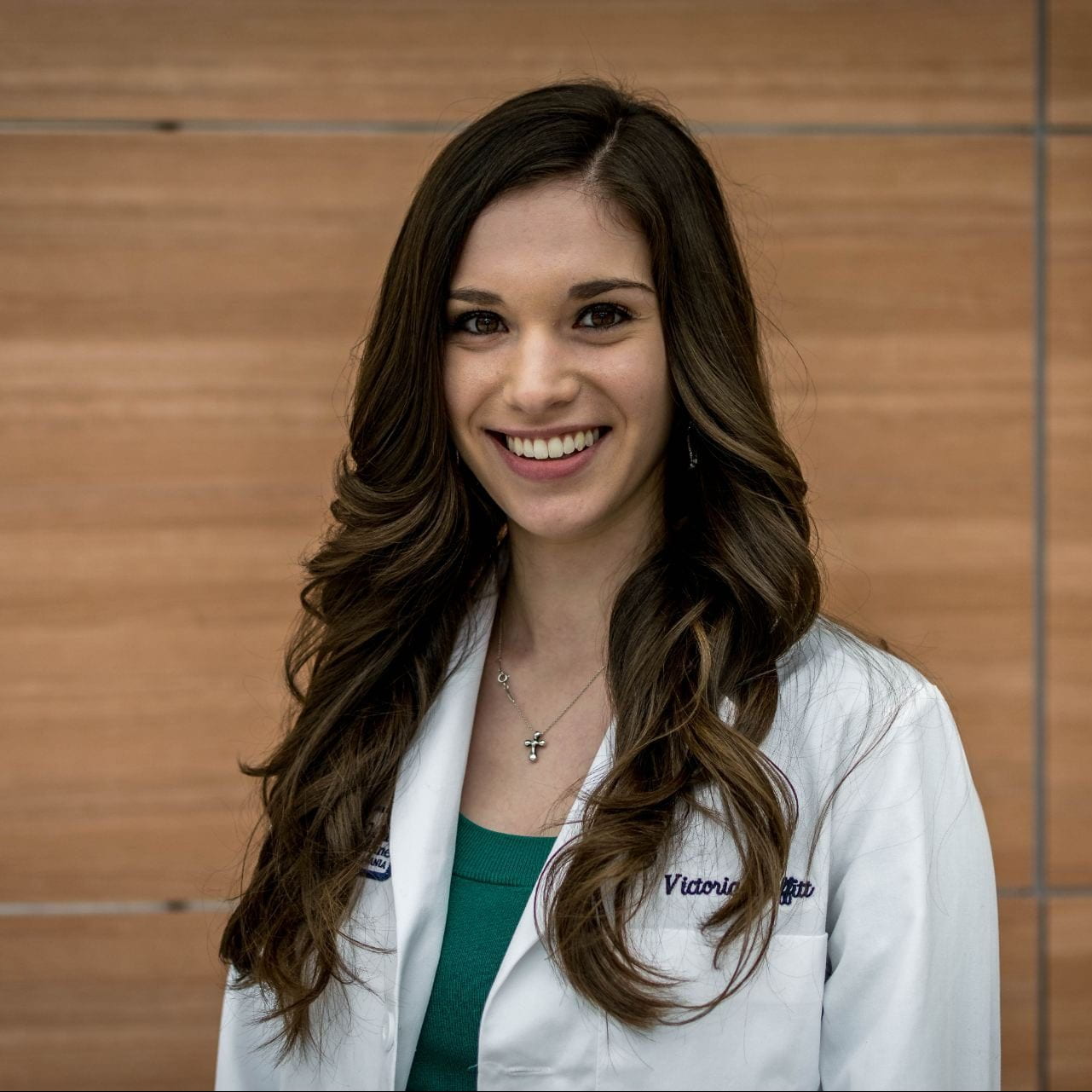
Victoria Moffitt
Project Coordinator
Victoria Moffitt is a 3rdyear medical student at the Perelman School of Medicine. In her future career, she hopes to become a Med-Peds physician (a doctor who cares for both children and adults). She also plans to pursue an MPH and is especially interested in a subset of Public Health called One Health –a field that seeks to achieve optimal health outcomes by appreciating the intersection of human health, animal health, and environmental health. She was therefore thrilled to join the Galápagos Education and Research Alliance, as the interconnectedness of One Health is undoubtedly exemplified in Galápagos. She spent the summer of 2019 conducting a public health needs assessment in San Cristóbal alongside Gina Chang, Ernesto Vaca, and members of the community. Prior to attending the Perelman School of Medicine, she completed her undergraduate education at the University of Pennsylvania where she double majored in English and Hispanic Studies. In her free time, she loves scuba diving, spending time with her dogs and parrot, reading, and playing the piano.

Dayanna Salas
Project Coordinator
Dayanna Salas is a part of the undergraduate Class of ‘24 at the University of Pennsylvania. She intends to double major in International Relations and Economics. She is interested in the diplomatic, economic, and cultural relations between South American countries. Born in Guayaquil, Ecuador, she intends to use her education to get involved in Ecuadorian politics. During her free time, Dayanna enjoys listening to k-pop, playing guitar, and watching Netflix shows with her friends.

Nikole A. Bonillas Félix
Project Coordinator
Born in Nogales, Sonora, México and raised in Laredo, Texas, Nikole A. Bonillas Félix is an undergraduate the University of Pennsylvania studying Biology and Latin American and Latinx Studies on the pre-med track. She is interested in the intersection of biology and Latin American culture, wishing to promote science education and public health in Latinx communities. When not working with the lab, Nikole loves to sing, make, and listen to music on her own and as co-founder and co-director of Fuerza Penn’s first and only Latinx music group. She also enjoys cooking her favorite Mexican dishes, spending time with her friends and family, and participating in community organization for arts and culture and immigrant, health, and social justice.
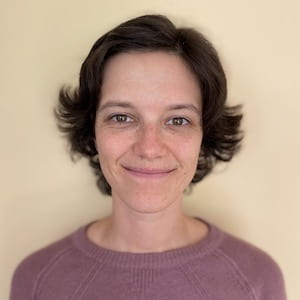
Jacqueline Wallis
LAVA Climate Project Coordinator
Jacqueline Mae Wallis is a PhD student in Philosophy at the University of Pennsylvania. Her research interests include philosophy of science, philosophy of biology, bioethics, and social & political philosophy as they intersect with issues of justice. Before graduate school, she worked as a biology research technician at the Fred Hutch Cancer Research Center in Seattle, WA. Jacqueline has an MA in Philosophy of Biological and Cognitive Sciences from the University of Bristol, and a BS/BA dual-degree in Cell & Molecular Biology and Philosophy from Seattle University. She’s inherited some Spanish from her Argentine abuelita and is a lover of reading, walking, and peanut butter.

Megan Howard
Project Coordinator
Megan Howard is an undergraduate student at Villanova University. She is studying Cognitive and Behavioral Neuroscience and Sustainability Studies. She is interested in the intersection of human health and the environment and hopes to integrate these interests in her future career. In her free time, she can be found on the sidelines of Villanova basketball and football games, doing puzzles, or reading.

Natasha Chity-Guevara
Project Coordinator
Natasha D. Chity-Guevara is an undergraduate at the University of Pennsylvania majoring in Hispanic Studies with minors in International Relations and Modern Middle Eastern Studies. She grew up in an Ecuadorian-Iranian household in Philadelphia, Pennsylvania and speaks English, Spanish, and French. She is interested in promoting science education in Latin American countries, as well as in the intersection between society and nature. After Penn, Natasha is planning to pursue a dual Masters & PhD in Spanish and Latin American Studies. In her free time, she enjoys baking, listening to music, volunteering with Puentes de Salud in South Philadelphia, and spending time with her friends and family.

Elizabeth Vo-Phamhi
Project Coordinator
Elizabeth Vo-Phamhi is in the Class of 2022 at the University of Pennsylvania and is double majoring in Cognitive Science (Computation concentration) and Classical Studies. She is passionate about issues of conservation, climate change, and access to science education. She is from San Bruno, California, and speaks English, Vietnamese, and Japanese. Outside of the lab, Elizabeth enjoys playing the harp, learning Spanish on Duolingo, and exploring the redwoods near home.

Nia Lucas
Project Researcher
Nia Lucas is a 2nd year MPH student studying global health at the University of Pennsylvania. She graduated from Emory University in 2019 where she studied biology and global health. In her future career, she plans to practice global medicine in Latin America while working to address health disparities in Latinx communities. During her free time, she enjoys hiking, photography, and exploring restaurants.